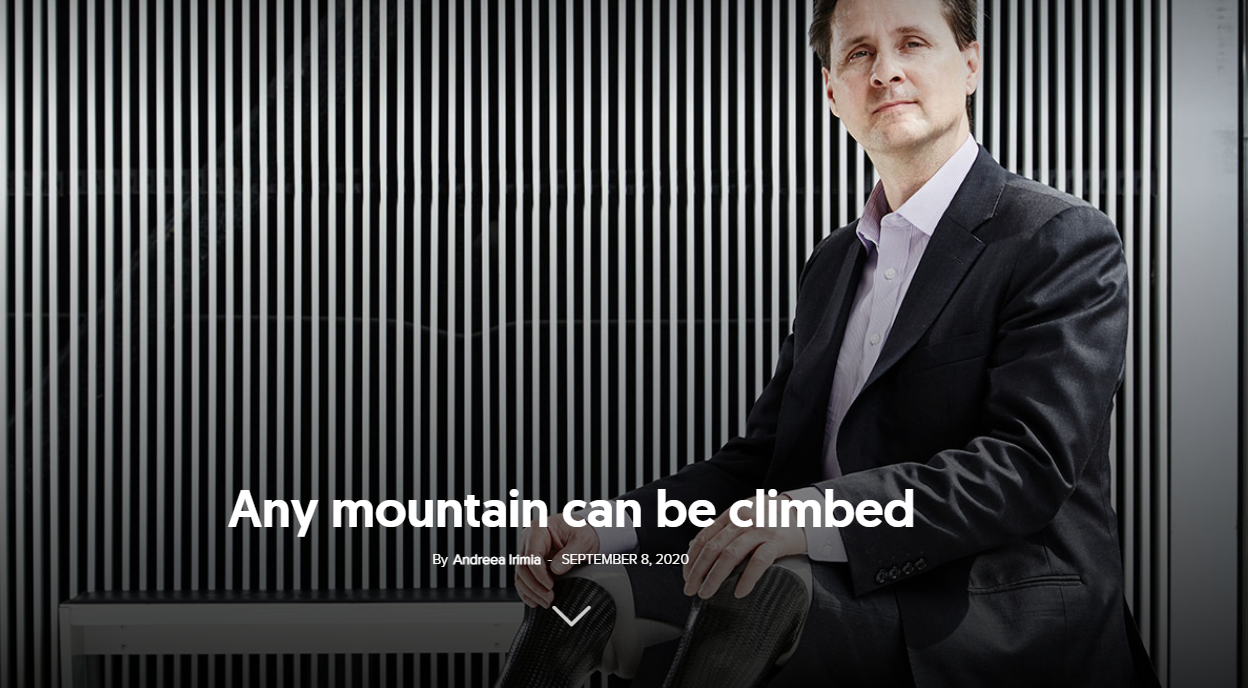If we were to liken life to the Olympics, then we would easily understand two fundamental things: you can’t score first in all the tests and, even in the areas where you are very capable, you can win by doing less than your best if those you compete against are not much of a challenge.
Having experience with middle school pupils, my wife tells me often that there are no children who can score an A for every discipline—that is, there are no students who are very good at everything. There may be cognitive limitations involved, but we are especially confronted with subjectively self-imposed limitations. I was never very fond of the exact sciences, although I honestly acknowledge their merit and importance. However, this acknowledgment never made me an A student, not even when I received an A (which would occur sporadically for these subjects).
It is also true that in a non-competitive team you tend to be content with the level that keeps you above the others, although that level could be a medium one in another situation or with another group of people.
In the context of these two realities, three questions arise that I will seek to answer in the following.
The first question is: How do you know when and if enough has been done in a certain area of your life? When you compete with others and you don’t succeed, things that you could have done but neglected, always come to mind. Therefore, failure or weaknesses, discovered in a competitive/challenging context, are what tell you if your training and performance were at their best or not. But let’s go a little deeper into this issue.
Failure, evaluation, and review are not pleasant processes, but they create a unique context in which you can confront yourself in terms of your achievement level and the connection between this and the expectations or impressions of others. Therefore, we must not only surround ourselves with friends who approve of our ideas and performance, but also with people who criticize our views or achievements. Well managed, criticism is one of the best motivators for progress and change.
Beyond what others tell us, we also have the opportunity for self-evaluation, which, together with maturity, will help us realise that we cannot speak of absolute sufficiency, but only of sufficiency in a given context. I remember as if it were yesterday that every time I studied well or very well (not that I always did that!), I didn’t want to believe that I knew it all or that I couldn’t have gained more knowledge before the exam, but I was content to find that, in the circumstances in which I found myself, I knew almost everything I could know for the task that lay before me.
The second question is: Do you ever feel afraid that you have not reached your potential or that you will never reach it? I know first-hand two similar cases of people who have taken their admission exam to medical school several times. The first person tried seven times, then gave up and worked all her life as a nurse.
The second person tried nine times and the last time he succeeded, and today he is a doctor. Although I know the underlying feelings and impressions that the two people in question experienced only in part, I sense that the first person will appear to the reader as someone who stopped earlier than she should have, and the second as a persevering person. Nevertheless, at some point, perseverance and success have little to do with reaching one’s full potential.
Although I try to avoid categorical or absolute statements, I dare to avail myself of the opportunity and say that there is absolutely no one who can reach their full potential in any aspect of their life in which they display that potential. The briefness of life, the changing circumstances, and the opportunities that come and go are just some of the causes that do not allow development in all areas in which one could develop. Understanding this limitation helps us realise that we need less to be happy. Ultimately, it’s great to perform regardless of whether the field is narrower or wider.
The third question is: Do you experience the fear of doing too much, of trying too hard to run after an illusory “better”? This risk is also out there, isn’t it? I read in a book about the art of research that if you always expect yourself to have a perfect grasp of any subject you write about, you will never write again, or you will write very little. The author suggested that it is important to say something, not to say everything. At the same time, we are all aware that striving for the “best” is essential, because it helps you to keep going.
Imagine that you are an excellent baker, the only one and the best in your city. You will be sought after by almost everyone, but never by someone who is gluten intolerant. This is how we understand that it is not at all wrong to try to reach as many people as possible with your achievements and abilities. Sometimes you will have to try new ways, plans, and recipes. But balance is important. Let’s do what we do well, but avoid perfectionism. The latter is anyway a subjective judgment of what we do.
Even after doing things excellently (as much as we are able to evaluate that) there will still be some who suggest that things could have been done differently or better. I often come across this reality in the research world. When an expert writes a study in a field in which he feels at home, all reviews of that paper, made by other experts, will either reveal that certain things can also be interpreted differently, that there is more left to say, or they will highlight a particular resource which the author, for one reason or another, failed to mention.
We can easily move from reaching our potential to killing it, if we avoid constructive criticism which could be brought to us, if we try to reach our potential in all the areas in which we are capable, or if we end up not wanting more.
Laurenţiu-Florentin Moţ obtained a PhD in the New Testament from AIIAS (Philippines), and is an associate professor and rector of the Adventus University in Cernica.




















